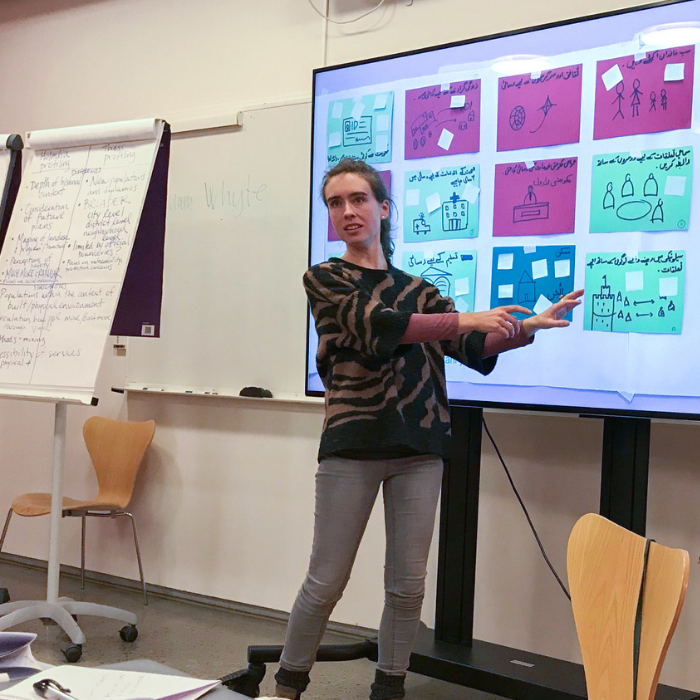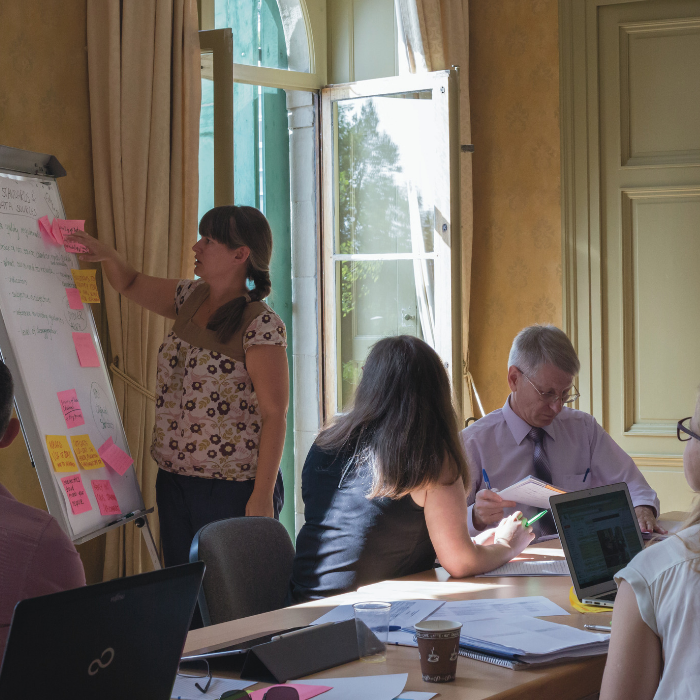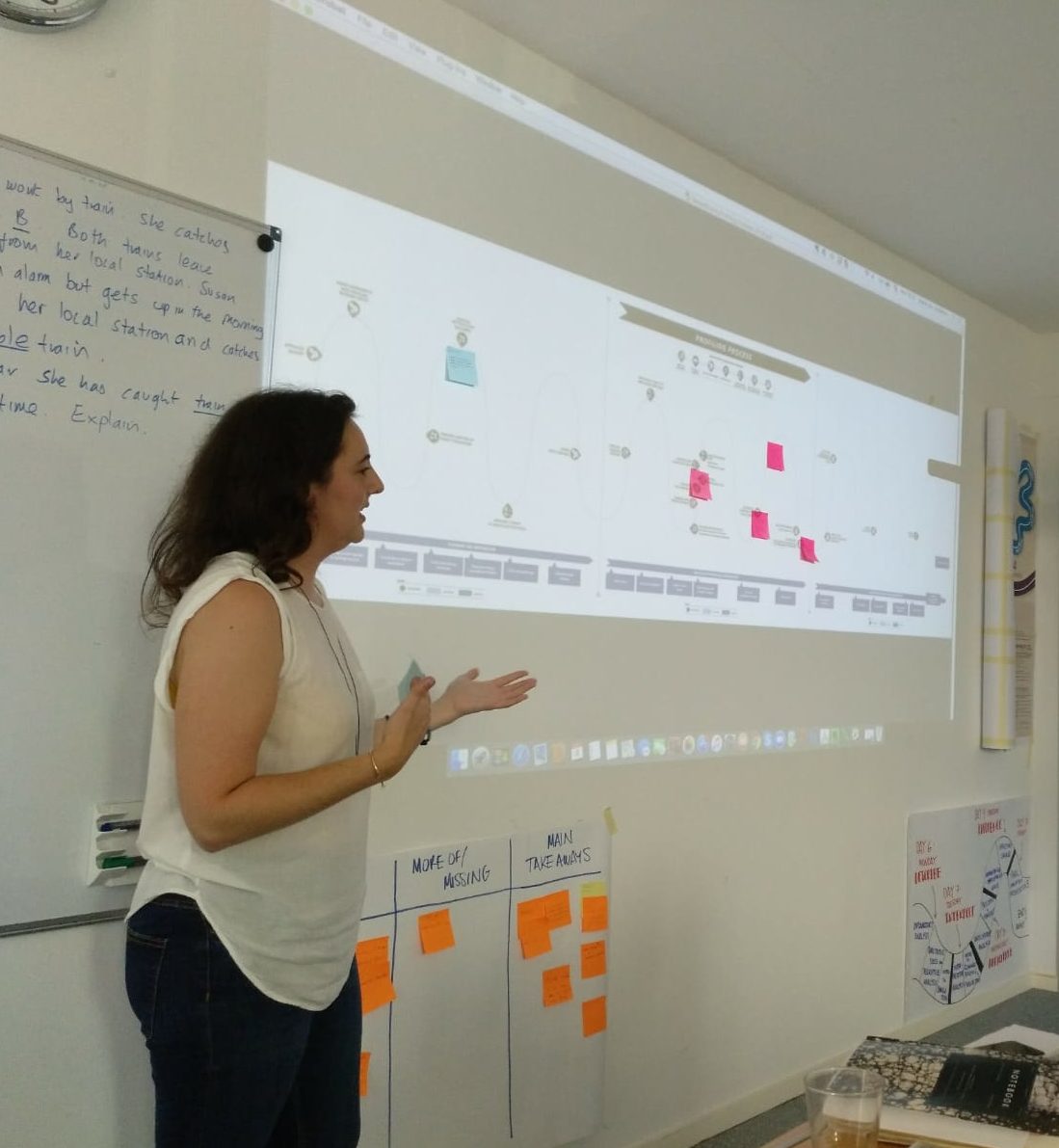One of the main goals of our 2018-2020 strategy is to improve profiling capacities at the global, regional, and national level. To do so, we design and deliver quality training sessions and workshops tailored to participants’ needs.
We integrate our thematic modules into partners’ training programmes in areas such as policy development, protection, and information management, and into courses targeting individual organisations such as UN agencies, international NGOs, as well as national and local authorities and statistical institutes.
Our thematic training modules cover a broad range of areas, from displacement to IDP data for law and policy, protection and durable solutions analysis, and IDP statistical practice, information management, collaborative data analysis and urban profiling.

Since 2015, we participate in the annual Sanremo Course on the Law of Internal Displacement in Italy, where we regularly facilitate sessions on data collection and durable solutions. Organised by the International Institute for Humanitarian Law in cooperation with UNHCR and the Special Rapporteur on the human rights of IDPs, the intensive course draws participants from a wide range of countries, providing not only a learning opportunity but also a forum for exchange and discussions on best practice.
In the past, we have also helped to facilitate sessions in country level law and policy workshops and training including in Uganda, Liberia and Afghanistan.
Profiling is a valuable protection tool and we regularly invited to facilitate training and workshops to underline this message.
These include Danish Refugee Council (DRC)’s flagship protection training programme that includes a half-day session on information management tools for protection, as well as ICRC’s annual workshop on protection and internal displacement that has more recently incorporated dedicated sessions on profiling led by JIPS. As an active member of the Protection Information Management (PIM) community of practice, we have also supported the development and delivery of training material on several occasions in different locations.
We work with national statistical offices on sound data practices and seek opportunities to build the capacity of these important partners.
We recently took part in training events organised by the World Bank on measuring violent conflict in micro-level surveys. Building from the work of EGRIS and our own broader expertise, we co-facilitated several sessions on refugee and IDP statistics, surveys and sampling. The training targeted representatives of national statistical offices from eastern Europe and central Asia (March 2018) and from the Middle East (September 2018).

In addition to our contributions to the annual Sanremo Course on the Law of Internal Displacement, we have also provided training to inform the development of national durable solutions strategies.
In Côte d’Ivoire we worked with IDMC and NRC’s protection roster ProCap to co-facilitate a two-day workshop, during which we integrated profiling and the value of data to shape the durable solutions strategy under development. We have also co-led similar efforts in Afghanistan.
We provide input for major UN agencies such as UNHCR and OCHA on IM. We co-facilitate UNHCR’s biennial Operation Data Management Learning Programme (ODMLP), giving it a unique opportunity to integrate collaborative profiling practices into a flagship UNHCR initiative on data management. We also contribute to a series of technical sessions that form part of the course, and to UNHCR’s annual Training on Information Management in Emergencies (TIME).
In March 2018 we participated in OCHA’s coordinated assessment and information management (CAIM) training held in Berlin. The course was an opportunity for professional learning and exchange of experience, which will also enable us to refine our own training initiatives such as PCT and joint data analysis training package.
Together with ACAPS, we are working together in the framework of ACAPS’ Humanitarian Data Analysis Program (HAP), a six-month training programme that opened with two two-week sessions in June and July 2018. We piloted and facilitated several modules on collaborative data analysis, building on complementary areas of expertise with ACAPS and focusing on increasing soft skills and technical capacities. Participants from across the humanitarian and development sectors included OHCHR, DRC, IFRC, OCHA, NRC, WHO, UNHCR, IOM and Terre des Hommes.
The work will feed into the delivery of field training through the development of a standalone collaborative analysis training package. This has already been piloted in Afghanistan and Ukraine in 2018.

As part of the Urban Analysis Network Syria (UrbAN-S) consortium, we are working to develop an urban profiling toolkit and training package that aim to increase partners’ capacity to collect, analyse and use data in urban settings.
UrbAN-S is made up of iMMAP, JIPS, the Mercy Corps, the Joint Research Centre and other organisations that intend to use their broad range of urban expertise to establish a system of high-quality urban analysis to inform effective planning and interventions in Syria. It is part of the broader Urban Analysis Network (UrbAN), which has developed an approach by combining various methodologies to produce an integrated urban picture of how cities function and cope with conflict and its the aftermath.